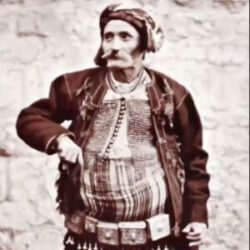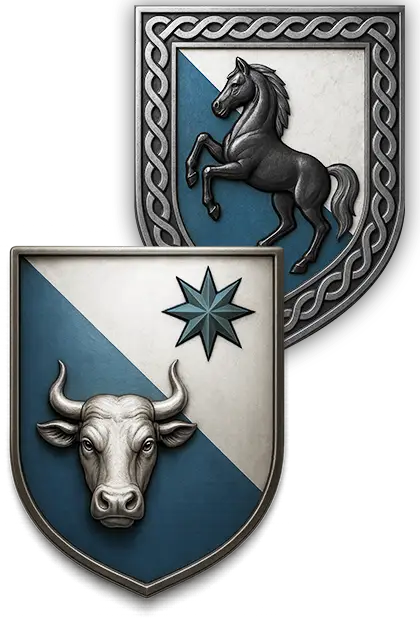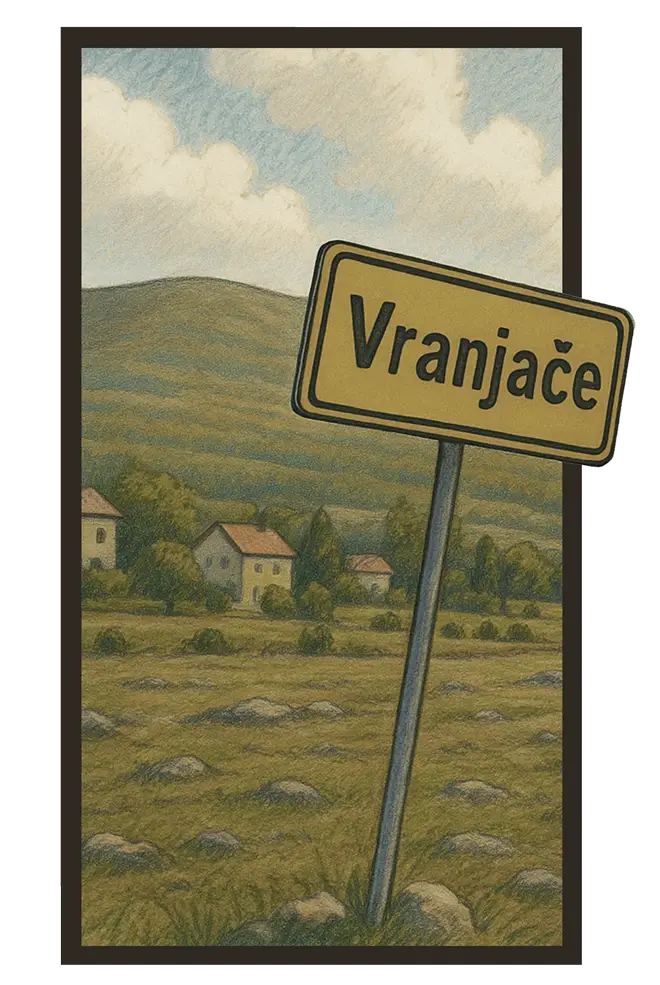Legend of the five Brothers
An extraordinary tradition lives in the family
The legend of the five "Wolf" brothers from Vranjače
Long ago, during the heyday of Ottoman rule, hidden in the mountains between Bosnia and Dalmatia lay a small village called Vranjače. In this harsh land, where winter bit deep and the forests whispered their secrets, lived five brothers of a single bloodline. Their names are long forgotten—but their legend lives on.
The brothers were known far and wide—not for wealth or titles, but for their unwavering strength, their loyalty, and their fearlessness. Each of them had faced the Janissaries, outwitted tax collectors, and hunted the wolves that plagued the valleys. Together, they formed an unbreakable ring of protection around their homeland.
It is said that their house had no lock—for no one dared to enter uninvited. Even Andrija Šimić and his Hajduks—those legendary freedom fighters and outlaws who fought the Ottomans from forests and caves—kept their distance from their hearth fire. Not out of shame, but because they knew: If the five brothers weren’t your blood relatives, you had no place near their fire.
One winter, a band of ruthless mercenaries descended from Dalmatia, plundering and burning villages on both sides of the border. They were feared even among the Hajduks. But when they reached Vranjače, they paused at the edge of the forest. The trees seemed to hum warningly. One of the elders among them whispered:
“The five wolf brothers live here. We’re not going any further.”
Some say the brothers vanished into the forest when they grew old, returning to the earth that once nurtured them. Others believe they still walk—shadows among the trees, protecting the village in spirit.
That is what the stories say and what was sung about.

Why should ordinary farmers be feared?
1. Farmers – yes, but also warriors
The Trogrlić brothers, mentioned in the legend, probably lived in a border region characterized by constant conflict with Ottoman tyranny, natural forces, and social insecurity. Many peasants of this period were:
- with rifles, sabers, and long knives
- combative – often former militiamen, Cernida fighters, or border guards
- organized – brothers who stuck together could form a small army
In remote villages, reputation was often more important than title. Those who appeared dangerous were considered dangerous. Those who knew how to defend themselves were respected.
2. “Wolf Brothers” as an archetype
The term “Wolf Brothers” is powerful in itself: The wolf represents strength, independence, loyalty to the clan, and unbridled power. Five brothers who lived together like wolves – that means:
- They were unpredictable.
- They were considered independent.
- Perhaps they were tall, silent, wild – appearances that made an impression.
Such men were not easily taken by surprise – and hajduks like Šimić knew exactly whom to avoid rather than provoke.
3. A silent agreement
Perhaps it was not an expression of fear, but of respect among equals: Šimić realized: “These men don’t need trouble—they already live in conflict with the world.”
Perhaps he had a regional connection that led him not to disturb them.
- Who was Andrija Šimić – and who were the Hajduks?
Andrija Šimić (1833–1905) was one of the most famous hajduks – rebels and freedom fighters – from Herzegovina. He was famous for his courage, cunning, and rejection of Ottoman rule. Šimić became a legend because he challenged wealthy feudal lords and authorities, but was often seen as a protector of the common people.
The hajduks (Croatian: hajduci) were armed men who lived in the border regions of Dalmatia, Herzegovina, and Bosnia from the 17th to 19th centuries. Depending on their perspective, they were considered either robbers or heroes – many fought against the Ottomans or the authorities and were later revered as folk heroes.

Between legend and truth: What makes the story so powerful?
In a world without titles, certificates, or universities, respect, fear, and admiration were engendered by actions and attitude. The legend lives on not because it can be verified—but because it tells what is true in the spirit of the family:
- That the Trogrlić were no ordinary peasants
- That they stuck together
- That they embodied a quiet power recognized even by outlaws
- And that their fire was never extinguished, neither by Ottomans, hajduks, nor time


